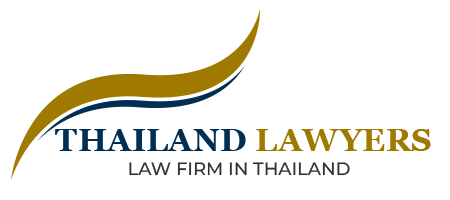Thai Permanent Residency. Permanent residency (PR) in Thailand represents one of the most significant legal statuses that a non-citizen can obtain, allowing a foreign national to live in Thailand indefinitely without the need for an annual visa renewal. While not equivalent to citizenship, permanent residency conveys notable legal and practical benefits, including enhanced immigration stability, streamlined re-entry, and eligibility for certain rights in property and business registration.
Due to its quota-controlled nature, the PR system in Thailand is selective, procedurally complex, and periodically available depending on government policy. This article provides an in-depth look at the legal framework, procedural requirements, and strategic issues surrounding Thai permanent residency.
I. Legal Basis
Permanent residency in Thailand is granted under the Immigration Act B.E. 2522 (1979) and its subsequent amendments. It is administered by the Immigration Bureau, under the authority of the Royal Thai Police and the Ministry of Interior.
Each year, the Minister of Interior may issue an announcement inviting applications for permanent residency, typically published in the Royal Gazette, though not guaranteed to occur annually. This announcement specifies the application window, quota, and updated requirements.
II. Quota System and Nationality Caps
Thailand imposes a nationality-based quota on the number of PR applications that may be approved in any given year. As per regulation:
-
The annual cap is 100 persons per nationality
-
If an applicant’s country has multiple jurisdictions (e.g., U.S. territories), they are aggregated under the main state
-
In practice, fewer than the full quota are approved, making PR a selective and competitive process
III. Categories of Eligibility
Applicants must fall into one of the officially recognized categories, which include:
-
Investment
-
Applicant has invested at least 10 million baht in Thailand for at least 3 years, in approved formats (e.g., government bonds, Thai limited company, real estate)
-
-
Employment
-
Applicant must have a valid non-immigrant visa (typically Non-B) and have worked legally in Thailand for at least 3 consecutive years
-
Must show minimum income thresholds and contribution to the Thai economy
-
-
Support of Thai National/Spouse or Child of Thai Citizen
-
For foreign spouses of Thai citizens or foreigners supporting Thai children
-
Proof of relationship, financial support, and legal status required
-
-
Humanitarian Grounds
-
Typically includes dependents (e.g., parents of Thai citizens), retirees in special circumstances, or other humanitarian cases
-
-
Expert/Academic
-
Applicable to individuals working in high-level education, research, or special skill areas benefiting Thailand
-
Each category has specific supporting documentation and justifications that must be submitted in Thai, accompanied by certified translations if in a foreign language.
IV. Basic Eligibility Requirements
Beyond category-specific criteria, all PR applicants must also meet the following general conditions:
-
Hold a non-immigrant visa for at least 3 consecutive years
-
Hold multiple consecutive 1-year visa extensions under the same category
-
Be in continuous employment or residence in Thailand (with minimal absence)
-
Have no criminal record in Thailand or in the applicant’s home country
-
Have proof of tax payments for at least 3 years
-
Speak basic Thai and demonstrate understanding of Thai society (via an interview)
V. Required Documentation
While requirements vary by category, common documents include:
-
Passport and Thai visa/extension stamps
-
Work permit (if employed)
-
Marriage certificate or birth certificate (for family-based applicants)
-
Company registration documents (for investors or employers)
-
Tax returns and personal income tax receipts (Phor Ngor Dor 91)
-
Proof of residence (TM.30, yellow house book, or rental agreement)
-
Police clearance from both Thai authorities and applicant’s home country
-
Medical certificate (in some categories)
-
Photos, including family or cohabitants for certain categories
All foreign-language documents must be translated into Thai and legalized by the respective embassy and Thailand’s Ministry of Foreign Affairs.
VI. Application and Review Procedure
1. Filing
Applications must be submitted in person at the Immigration Bureau Headquarters in Bangkok or at designated regional immigration offices (if permitted).
A non-refundable filing fee of THB 7,600 applies. A government officer will conduct a preliminary review and issue a receipt number for tracking purposes.
2. Interview and Language Assessment
Applicants will undergo:
-
A Thai language interview, typically with questions about personal background, family, or occupation
-
A short test or recorded assessment to evaluate listening and speaking ability
Poor command of Thai is a frequent reason for deferral or denial.
3. Background Check
This includes:
-
Police and criminal record verification
-
Cross-checks with national security and immigration watchlists
4. Committee Review and Approval
The application is then submitted to the Permanent Residency Committee, chaired by senior officers from the Immigration Bureau and Ministry of Interior.
Final approval is granted by the Minister of Interior, based on recommendations. The process can take 12–24 months depending on volume and complexity.
VII. Status After Approval
Once approved:
-
The applicant receives a Certificate of Residence and blue residence book (Tabien Baan for foreigners)
-
They may apply for a non-expiring alien registration card
-
A foreign identification number (13-digit) is issued
-
Annual reporting to Immigration (90-day reporting) is no longer required
-
The individual may live and work without visa renewal
VIII. Rights and Limitations
Rights
-
Reside in Thailand indefinitely
-
Buy a condominium (as permitted under foreign quota)
-
Apply for a work permit without a visa
-
Include PR status in spouse or child’s application
-
Apply for Thai citizenship after 5 years of PR (subject to further conditions)
-
Easier access to mortgages or personal loans from Thai banks
Limitations
-
Cannot vote or hold public office
-
Must report address changes to the Immigration Bureau
-
PR can be revoked for national security reasons or criminal conviction
-
Travel outside Thailand for more than 1 year without re-entry permit may void PR
IX. Common Pitfalls and Strategic Considerations
-
Failure to meet income or tax thresholds often results in automatic rejection
-
Unregistered dependents or unrecognized marriages can complicate family-based applications
-
Switching visa types during the qualifying period resets the required 3-year minimum
-
Using unaccredited consultants or agents may lead to fraudulent or incomplete filings
-
Dual nationality issues may arise if the applicant’s home country does not allow second citizenship and the applicant plans to naturalize after PR
Due diligence, document accuracy, and consistency across applications are essential.
Conclusion
Thai Permanent Residency offers significant long-term benefits for foreign nationals committed to living and contributing to Thailand. However, the system is governed by formal rules, annual quotas, and high evidentiary standards. Success requires proper preparation, consistent immigration history, compliance with tax and legal obligations, and sufficient integration into Thai society.
Given the complexity and duration of the process, applicants are encouraged to consult qualified legal advisors or immigration professionals to ensure compliance with current regulations and to mitigate risks that may result in delay or rejection.

